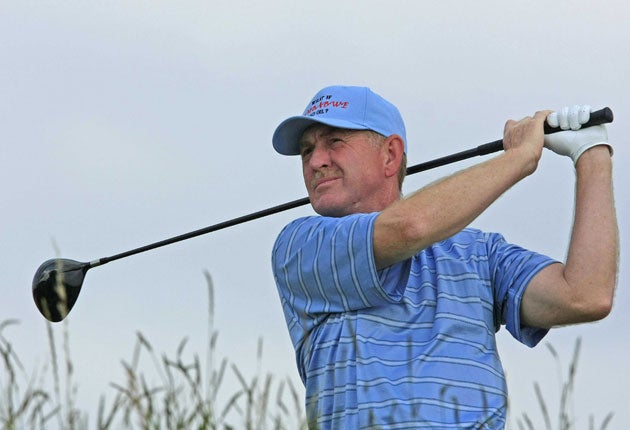Drug can reverse the effects of MS
Discovery is hailed as breakthrough in treatment of debilitating condition

Scientists have made a dramatic leap forward in the treatment of multiple sclerosis with the discovery of a drug that not only halts the disease but can also reverse it.
The discovery is being hailed as the biggest advance against the debilitating neurological condition for more than a decade and could prove effective against other, similar diseases. The MS Society said it was "delighted" by the results.
Scientists believe the drug, alemtuzumab, may also be effective in other conditions. Further studies are under way into its use in autoimmune conditions such as rhemumatoid arthritis, in which the immune system attacks itself, and in transplant surgery.
Alemtuzumab was developed 30 years ago by researchers at the University of Cambridge and is an established treatment for leukaemia. It was the first monoclonal antibody – a type of immune system booster – given to humans and heralded a new era of powerful medical treatments. Its creator, Cesar Milstein, was awarded a Nobel Prize in 1984.
In the 1990s, Cambridge scientists began investigating it for multiple sclerosis but initial studies, carried out on patients with advanced disease, were disappointing.
Alasdair Coles, one of the researchers at the department of clinical neurosciences, said: "It wasn't clear how safe the drug was so initially we gave it to patients with nothing to lose. They continued to get progressive disability and that led us to the view that it needed to be given early on, before scarring and nerve death had occurred." The study involved a total of 334 patients in Europe and the US with early relapsing-remitting MS who were given the standard treatment of beta-interferon or one of two dose levels of alemtuzumab. After three years, those taking alemutuzumab had 74 per cent fewer attacks and 71 per cent less disability compared with those taking beta-interferon. Dr Coles said: "It is superlative – much better than the standard treatment."
The drug is given by IV infusion over five days and then no further treatment is needed for more than a year. The earliest patients in the study, who started treatment in 1999, have had four cycles of treatment. Dr Coles said that he was "confident" that the treatment would be effective for years but that further studies were under way to see how many cycles of treatment could be given.
The trial was almost abandoned in 2005 after three patients developed a dangerous condition leading to a low platelet count, affecting blood clotting, and one died of a brain haemorrhage. About one in five patients also developed problems with thyroid function. With careful monitoring, the researchers were able to spot and treat affected patients and the trial restarted in 2007.
"Obviously [the death] was a disaster. But we now have a plan for how to deal with affected patients and the plan has worked. We have identified five other cases with low platelets, all of whom were treated and are well. It means patients need a lot of monitoring, but all our patients say the hassle is worth it," Dr Coles said.
The results are published in the New England Journal of Medicine. The drug must now undergo another trial before it can be licensed.
Tony Johnstone: 'Alemtuzumab has been a life-saver'
Tony Johnstone, a professional golfer, was forced to give up competitive golf in 2003, when he was diagnosed with MS. But after treatment with alemtuzumab in 2005, this year he won his first tournament since his diagnosis. He said: "The Jersey Seniors Classic was the most important win of my life. During my career, I had six wins on the European circuit and 22 wins on the US circuit. But to be told you will never play again and then go on to a win like that in Jersey; it's the greatest achievement of my life."
Now 52, he lives in Sunningdale, Berkshire, with his wife, Karen, and two children. For a year before he was diagnosed, he was struggling. "One day, I could hardly walk; it felt like someone had pulled the plug. I was sent for an MRI scan and I got the diagnosis. They said my career was over. When you are fit and a sportsman and something like that comes out of the blue, it knocks you down."
Then a specialist told him about the trial and he was one of the last patients accepted. "Alemtuzumab has been a life-saver. My co-ordination was worst affected. I had two cycles of treatment a year apart and six months after the second treatment I started playing again. It took me two years to relearn the game. But I am out there playing when I couldn't walk nine holes of golf before. If I can give hope to other people affected like me I am overjoyed."
Join our commenting forum
Join thought-provoking conversations, follow other Independent readers and see their replies
Comments